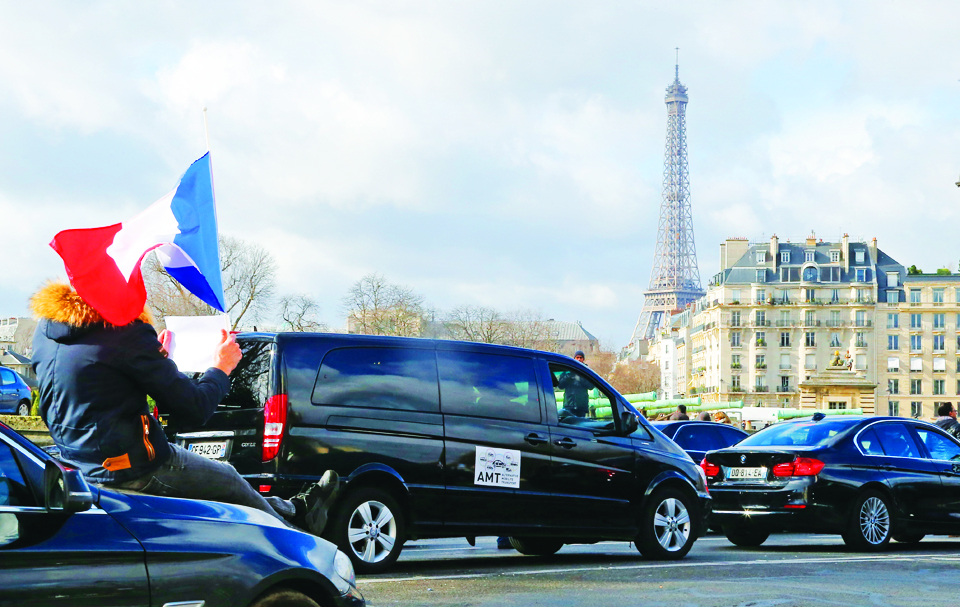
2/13/20
Colleen Hammond | Opinions Editor
As a result of the Jan. 28 federal court ruling, Duquesne University is not required to permit unionization for adjunct professors. In defense of their anti-union stance, the university cited a deep need for religious liberty.
The university’s central defense was that being forced to allow the adjuncts to unionize, would be an infringement on the school’s First Amendment rights, that generally allow it to act independent of governmental interference due to its status as a religious organization.
“The university is grateful that the Court recognized the importance of our religious mission in rendering this significant decision,” said Gabriel Welsch, a spokesperson for the university in an official university communication sent to all students.
In response, the National Catholic Register (NCR) recently published its reaction to this decision and Duquesne’s outlandish reasoning. In its bold statement, it titled its article “Hypocrisy on Display in Duquesne’s Religious Liberty Win.”
In this column, the NCR compared Duquesne’s case to another religious liberty trial involving ministering to immigrants crossing the border from Mexico to Arizona.
While the trial in Arizona was founded in truly Christian ideals of serving the poor, Duquesne’s quest of “religious liberty” was a failed charade, not remotely based in Catholic doctrine or teaching. After all, as pointed out in a letter-to-the-editor run in the Feb. 6 issue of The Duke, Duquesne is free to recognize unions regardless of whether or not they were forced to by the court. By failing to do so, the university has implied, erroneously, that unions themselves are counter to the school’s Catholic mission.
To claim that the Catholic Church is anti-union is inherently false. Although there is a wide spectrum of political and social beliefs within the Church, officials consistently uphold the importance and value of unions.
One of the earliest and most noted examples of pro-union sentiments from the Church comes from Pope Leo XIII’s 1891 encyclical Rerum Novarum. Of course, a lone, singular mention of union promotion is insufficient reflection of the Church’s views. However, statements advocating for unions were frequent among 20th century Catholic leadership.
St. Pope John Paul II, Pope Benedict XVI and Pope Francis have all declared their support for unions. Most recently, Pope Francis addressed the issue in a 2017 meeting with delegates from the Confederation of Trade Unions in Italy in which he calls upon “two epochal challenges that today the trade unions movement must face and defeat if it is to continue to perform its essential role for the common good.”
If the Pope, who is accepted as infallible within the Church on matters of faith and morals, can recognize the “essential role” unions play in the common good of society, why can’t Duquesne?
In addition to Pope Francis’s statements, Bishop Zubik of Pittsburgh has also voiced his support for unions.
In a 2017 column in Pittsburgh Catholic, Bishop Zubik upheld the teachings of the various popes while adding his personal experiences with his father who was a union worker.
“I don’t agree with every position taken by every labor union. But I believe — as the Catholic bishops of this country have long believed — that unions benefit society as a whole,” said Zubik in the column.
There is no Catholic doctrine or authority that demonizes labor unions, and there is no reason for the university to prevent unionization for adjunct faculty. University statements give the impression that unions contradict Catholic identity. They couldn’t be more wrong.
As part of Duquesne’s core curriculum, students are required to take at least one class with a “faith and reason” theme area. One of the frequently required readings for these courses is Dorothy Day: A Radical Devotion by Robert Coles. The book, as the title suggests, honors the life and work of Catholic union activist, Dorothy Day. Her monumental work for social change is praised by the Church and has even led her on the pathway to sainthood. In many cases, the university requires that Dorothy Day be studied as a model of courageous faith, yet in this circumstance, Duquesne is condemning her work by claiming that unionization contradicts catholicism.
The NCR is completely justified in their criticism of Duquesne’s behavior during this trial and verdict. Duquesne is hiding behind a false guise of “religious liberty” in order to prevent adjunct professors from unionizing.
While religious liberty must be upheld and Duquesne must fight to preserve its Catholic identity, this is not the way to go about it.
As a practicing Catholic, I am deeply disheartened that Duquesne is using its Catholic identity as justification for denying unionization to adjunct professors.
Unions do not contradict Catholic teaching, and the National Catholic Register is right to call out this hypocrisy.
Catholic teaching is entrenched in service to one’s fellow man, and Christ’s mission is rooted in caring for those in need. At this moment, adjunct faculty are those in need and, unfortunately, Duquesne is refusing to be their good Samaritan.


